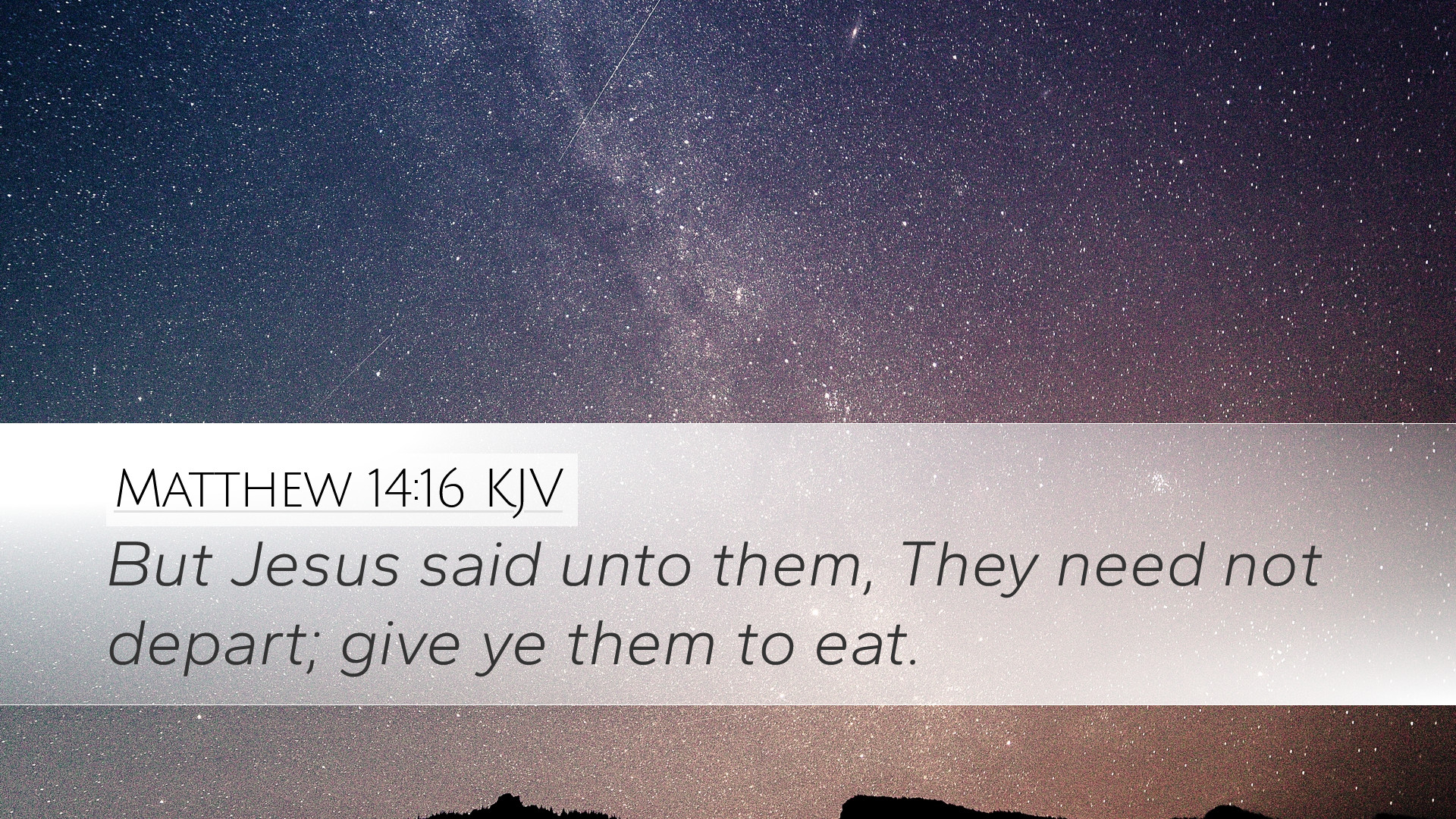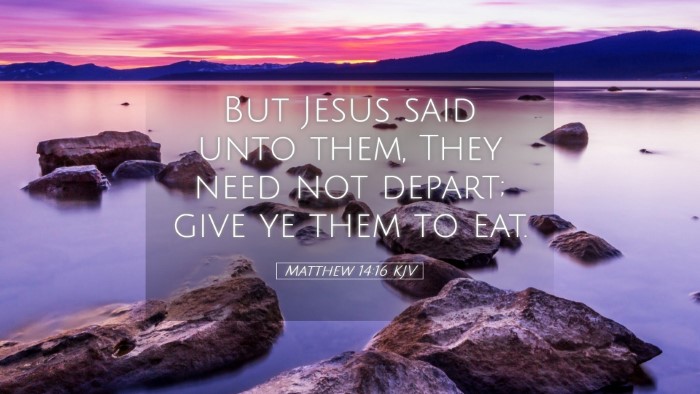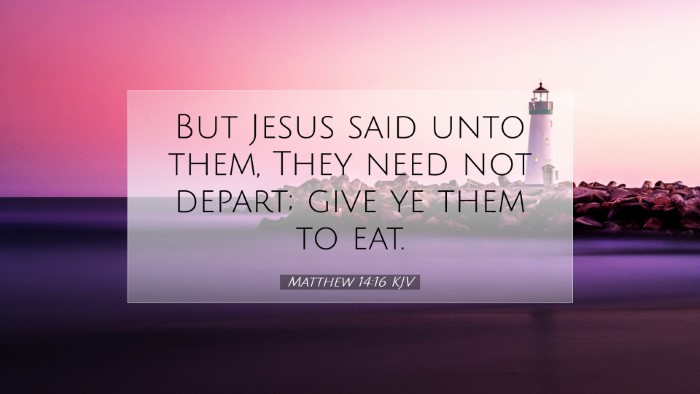Commentary on Matthew 14:16
Verse Context
Matthew 14:16 states, "But Jesus said to them, 'They need not go away; you give them something to eat.'" This verse occurs in the context of the miraculous feeding of the five thousand, which is a significant event in the synoptic gospels and emphasizes Jesus' compassion and divine provision.
Commentary Insights
This commentary synthesizes insights from various public domain sources, providing a comprehensive understanding of Matthew 14:16 for pastors, students, theologians, and Bible scholars.
1. Compassion of Christ
Matthew Henry emphasizes the profound compassion Jesus had for the multitude that followed Him. He observed that Jesus was aware of their physical needs and emotional state. His suggestion that the disciples feed the people reveals His desire to involve them in His ministry.
2. Instruction to the Disciples
Albert Barnes comments on the imperative nature of Jesus’ instruction, noting that it challenges the disciples' perceptions of their limitations. Their initial response of sending the crowds away reflects a common human tendency to avoid responsibility. Jesus redirects this by stating they should take action themselves.
3. Divine Provision
Adam Clarke focuses on the theme of divine provision in this passage. He points out that Jesus, by instructing the disciples to feed the multitude, anticipated the miracle that would follow. This action serves to strengthen the faith of the disciples and display Jesus’ authority over physical needs.
4. The Role of Faith
Henry also brings to light the role of faith in the disciples’ actions. By telling them to provide for the crowd, Jesus instigates a moment where their faith is put to the test. This incident challenges their belief in what they could accomplish through His power.
5. Theological Implications
The statement “You give them something to eat” can be viewed as a call to the Church. It emphasizes the responsibility Christians have to care for others. Barnes notes that this reflects the greater mission of the Church to provide for the spiritual and physical needs of people, echoing the Great Commission’s directive.
6. Practical Applications
- Empowerment: Jesus empowers His disciples to act in faith, indicating that believers today are called to engage actively in ministry.
- Courage in Evangelism: The directive can motivate churches to adopt more hands-on approaches in evangelism and outreach, meeting the needs of their communities.
- Understanding Limits: Recognizing our limitations doesn’t excuse inaction; rather, it can serve as a prompt to seek God’s provision and miraculous power in our endeavors.
- Role of Community: It also illustrates that the church operates as a community; individual believers are called to contribute to the needs of the whole.
Conclusion
Matthew 14:16 encapsulates a transformational moment that intertwines compassion, responsibility, and faith. As leaders and scholars reflect on this Scripture, they are reminded of the essential nature of Christian responsibility towards others and the divine empowerment available for such ministry. As Jesus invites His followers to act, He also provides for them, granting the necessary strength to accomplish the work set before them.


